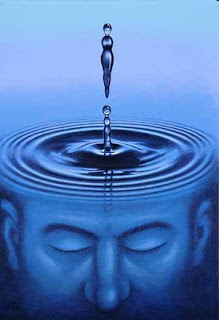 I'm one whose temperament is most suited to solitary
intellectual and creative pursuits, or to interesting conversation and
recreation with a few close friends.
I'm one whose temperament is most suited to solitary
intellectual and creative pursuits, or to interesting conversation and
recreation with a few close friends.Take a look at "Customer Service for curmudgeons" for one of my early attempts.
Attitude adjustment
(10/29/2009)
September 29, 2016, is my last day of work with Jacksonville Public Library.
Since I admire all my library colleagues across the profession as resilient, brilliant people who "have each others' backs" despite any yanking around they have to survive, it seems like I should revisit some of this blog for their sake.
Some of these posts are dated...discouraging "news reportage" about budget cuts...but more are meant as genuine cheer leading for library folk...though, granted, out of left field (see Daikon Radishes) .
I take a couple of themes very seriously:
- First, the quality of human interactions between library professionals and their clients is far more important than collections or technology
- Second, the primary mandate of public libraries is to ensure free access to essential information, together with instruction on how to use it effectively, to those who cannot otherwise get or afford it (see Poor Richard Redux: A Manifesto).
And a sardonic sense of humor....
2013
- Our war against ourselves 7/19/2013
- Resilience 11/21/2012
- Black Border 9/9/2012
- Phyllis Diller: 1917-2012 8/22/2012
- Can I Go Home Now? - Deluxe Edition 3/24/2012
- "Today, average is officially over" 1/25/2012
- The wrong conversation 9/4/2011
- I have to ask.... 5/5/2011
- Market Fundamentalism 1/31/2011
- Statutes & Statues 7/14/2010
- Community Integration 4/23/2010
- It's the infrastructure 2/5/2010
- Attitude adjustment 10/29/2009
- Library instruction 3/24/2009
- Ask a Librarian 2/4/2009
- Deeper Thoughts 11/18/2008
- Daikon Radishes 11/15/2008
- Summing up 9/14/2008
- Maurice Sendak 9/12/2008
- Digital Refugees 8/16/2008
- Digital Immigrants 8/15/2008
- Post-capitalism 7/18/2008
- Poor Richard Redux 7/8/2008
- Customer Service for curmudgeons 6/28/2008
- Neo-Luddite Web 2.0 6/25/2008http://surlylib.blogspot.com/2012/08/phyllis-diller-1917-2012.html


















